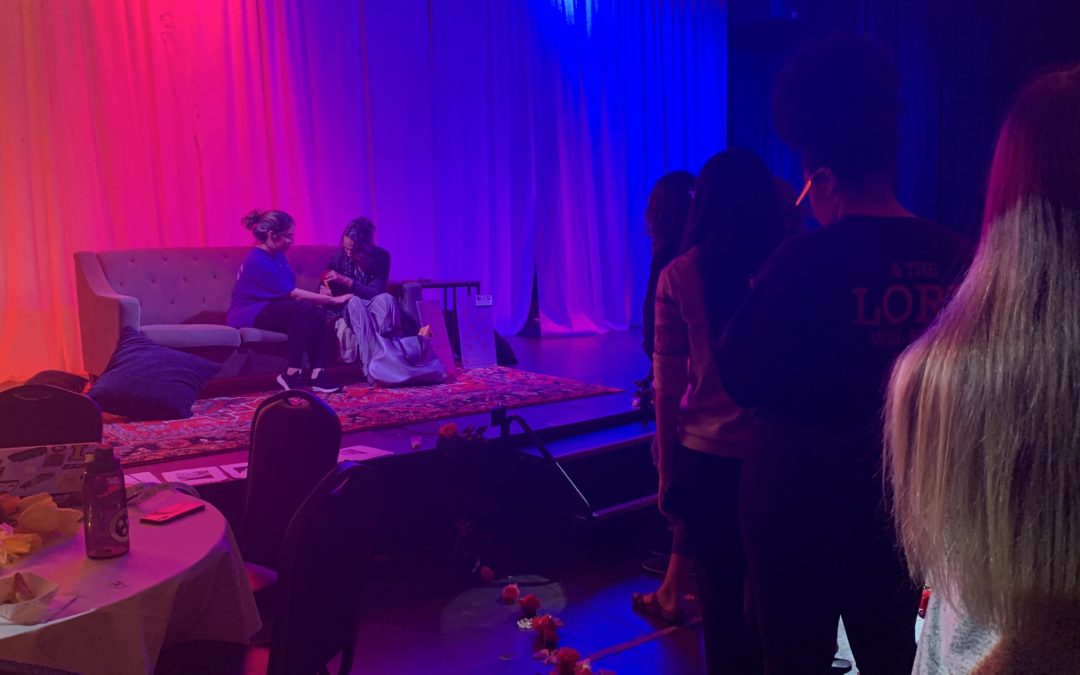As a part of the annual WOW (Welcome to Our World) Week, students organized Henna Night to bring the unique ceremonies and cuisines of Arab, Indian and Middle Eastern cultures to campus.
“I want people to know that it’s [henna is] so much more than just decoration,” said Kiana Rafiei, a student organizer for Lipscomb’s Office of Intercultural Development. “Yes, it’s beautiful, but there’s a meaning behind why my culture does this.”
During the event, students hired a local henna artist to give interested students the chance to experience the tradition.
Henna is a natural flowering plant that is ground into a thick paste and then piped directly on the skin. The wet paste is left on for 15 to 20 minutes until it dries and can be removed, leaving behind a light red or brown tattoo. This temporary body art can last anywhere from a few days to two weeks depending on how dark the stain is. In recent years, henna has evolved into Western fair entertainment and the design, called mehndi, is often mimicked in permanent tattoos. But, as Rafiei noted, the application of henna itself is a deeply rooted art form across many cultures.
“I’m Persian, but we do henna as decoration during Eid, the Islamic New Year, as well,” Rafiei said. “It means good luck and prosperity so it’s really important that we apply it with our family. It’s also applied as a pre-wedding tradition in some countries. Usually, the night before a wedding, the bride is given really detailed henna as a symbol of her devotion.”
The swirls and swoops of a henna design can be unique to each person, usually drawn free handed. Some can be created in only five minutes, while other elaborate designs can take hours. As the henna artist drew at the event on campus, she asked some students to trust her, while she felt their energy and designed accordingly.
In addition to henna, the event featured snacks and refreshments from Indian culture. This included samosas (fried pea and potato pastries), Parle-G shortbread tea cookies, a sweet green chutney made from mint and mango juice.
Indian student organizer Kamakshi Patel said the snacks made her want to share her culture more at similar events in the future.
“While I didn’t grow up in India, the snacks here just remind me of home,” Patel said. “We used to eat Parle-G cookies a lot and I remember eating them as a child. It’s little delicious reminders of my family. “Events like these are a way to help people at Lipscomb appreciate other cultures like mine and for them to witness a small part of my heritage.”

